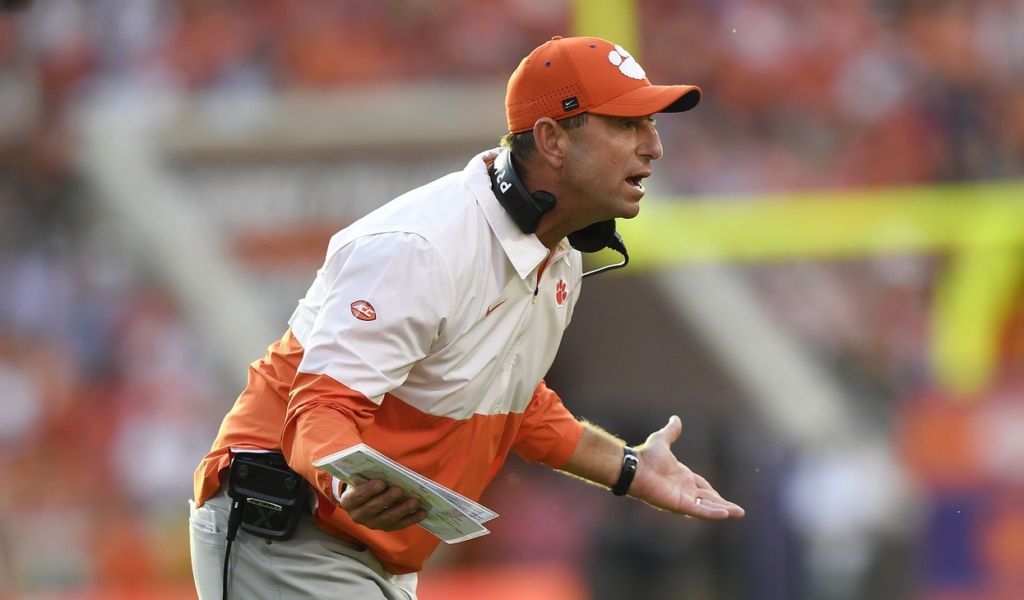After a controversial call late Saturday had an impact on Clemson’s loss to Duke, head coach Dabo Swinney raked the officials over the coals during his postgame press conference.
After being fined $10K for his remarks, Swinney doubled down on his criticisms one day later.
While meeting with members of the media on Tuesday, Swinney tripled down, calling for overwhelming reform when it comes to the college football officiating process.
“That’s why I was so frustrated with the refs, a little salty,” Swinney said during his weekly press conference. “Because there’s a lot at stake and there’s not consequences. Coaches get crucified, fined. Players get crucified, held to this unrealistic accountability standard. But refs have zero accountability. Well, they do, but it’s behind a curtain. They get to go home and drink a beer and get on with their life, and just leave the carnage left behind that affects a lot of people. People losing jobs. That system needs to change.”
Currently, college football officials are not full-time employees, something the head coach believes needs to change, paving a way for them to face the same kind of scrutiny that coaches and players are routinely subjected to.
“They need to be full-time refs, and it needs to be a job,” Swinney said. “There needs to be one leader and one voice, and that’s what it should be, number one. Then there should be public accountability, period. You can’t criticize them, but they’re on the field, they’re in the arena, but they’re the only ones in the arena that have no consequences publicly. Or, God forbid, you get to pay a fine because you criticize performance, but yet everybody else can be criticized.”
Swinney would like to see a challenge system implemented for the type of calls that Clemson experienced on Saturday. An extremely controversial pass interference call on Avieon Terrell that gave Duke a first down and the opportunity to win the game after it appeared the Tigers had gotten a fourth-down stop to seal a much-needed victory.
“There needs to be the ability to review egregious calls in certain situations because it means too much,” Swinney added. “People are losing jobs, whether it’s assistants or head coaches, or players and how they get crucified on social media and things like that. It’s impactful.”
As the system stands currently, teams are allowed to send in 10 plays to the ACC each week for review and Swinney says the response from the league is typically, “This will be addressed with the crew.”
However, to Swinney, that is not good enough. He believes the officiating process should evolve just as the sport itself has evolved.
“It’s behind a curtain,” Swinney said. “How dare we have accountability? In the meantime, we got gambling issues going on, people being suspended, all that kind of stuff, right? Refs are people, too. It ain’t just coaches and players, and if they’re a part of the game, then by God they ought to be a part of the game, and they ought to be a part of the accountability. They ought to be a part of the consequences, not just behind some shadowy curtain. They ought to have to answer for it.”
Photo by Bart Boatwright
